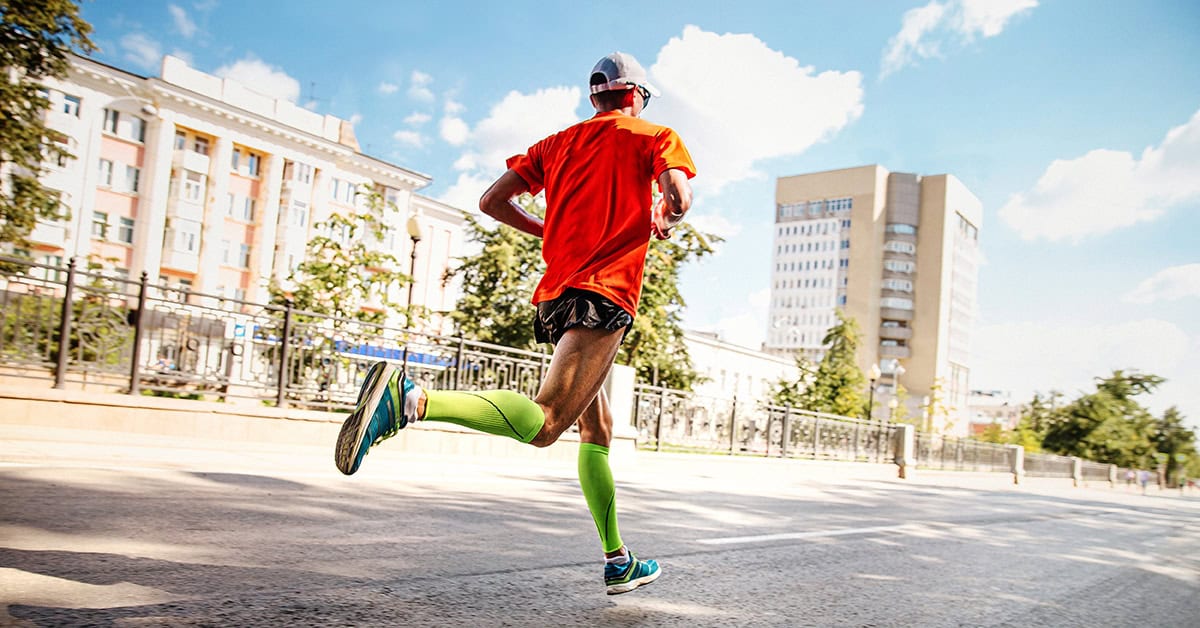Learn to Identify and Combat Over-Training
Over-training is a common occurrence in the fitness world. It has to do with excessive involvement in high-intensity exercises or activities, far more than your body’s recovery ability.
Over-training may affect athletes, sports enthusiasts, or anyone actively involved in staying fit and healthy. With a rise in sports competitiveness and the need to maintain a healthy lifestyle, individuals spend more time trying to keep fit. But the body has a limit to which it can be strained.
Instead of your training routine having a positive impact on your overall performance, you may begin to experience performance decline as well. Your general health state may be negatively affected. Fatigue, muscle soreness, and lack of concentration are some of the symptoms associated with over-training. When you begin to feel the strain and overall body weakness after every high-intensity activity, it may be a sign that you have a condition known as an over-training syndrome.
Over-training syndrome (OTS) may take a longer recovery time if you do not apply caution and discipline in treating the condition.
According to proven research carried out by fitness experts, over-training affects the circulatory and muscular systems. Research also shows over-training can hurt hormone regulation and the nervous system.
Most people believe that since exercising has a positive impact on our health, more exercise will also mean a higher wellness state. But they fail to realize that the body has a limit to recovering from the stress placed on it by excessive training.
What are the signs to watch out for to enable you to know when you are over-training?
1. Decreased Performance
When you notice that your performance is declining despite your increased training intensity, it may be a telltale sign of over-training. Symptoms such as reduced strength, endurance, and agility are often associated with reduced performance.
Related Article: Hitting the Running Reset Button
2. Excessive Fatigue
Fatigue is a normal part of an exercise routine. But when the body fails to recover after workouts, fatigue may be a symptom of over-training syndrome.
3. Moodiness and Agitation
Stress hormones, such as epinephrine and cortisol, are significantly affected by over-training. This change in hormone levels may result in mood swings and a lack of concentration.
4. Restless sleep or Insomnia
When the body is over-stressed, stress hormones are excessively produced, which may prevent you from having a sound sleep.
Other signs that show you may be over-training include:
- Loss of appetite
- Chronic injuries
- Depression or psychological stress
- Metabolic imbalance
Strategies to help you recover from over-training syndrome
Recovery from a condition of over-training may take a while. Still, the following procedures may help hasten your recovery process and ensure that you are back to full fitness.
1. Rest
Rest is undoubtedly one of the first and most significant treatments for over-training syndrome (OTS). Ensure that you take more extended rest, depending on how long you over-trained. Take, for example, that the over-training occurred for 3-4 weeks, then you may want to rest for a period of three to five days. After adequate rest, you may return to light training. When you begin to feel fully recovered and that a single workout isn’t leaving you completely exhausted, then you can increase your practice intensity.
2. Cross-train
You may want to engage in alternate forms of exercises if you notice that you may be over-training. You may choose to participate in leisurely cycling or yoga as an alternative exercise for active running or CrossFit. Cross-training helps to affect the impact of over-training on your sympathetic and parasympathetic nervous system. Do not substitute a vigorous or high-intensity exercise with another.
3. Use spot training to improve your weak areas
Spot training helps to improve your balance and mobility, which may help reduce your risk of injuries. Identify different weak areas or a history of health conditions such as knee injury or low back pain. Spot training may be helpful as you take a rest from your high-intensity training routine. Spot training also helps in rehabilitation and improvement from injury and other musculoskeletal health conditions.
4. Acupuncture
Acupuncture is an effective treatment strategy for over-training. It helps in enhancing your recovery process. Conditions that affect the hormonal, muscular, and nervous systems can also be reduced through acupuncture treatments. During the process of acupuncture, you may want to focus on meditation and relaxation as a means to help restore your hormonal and nervous system
5. Massage therapy to relieve aches and pains
You may consider getting a massage from a masseuse or professional chiropractor as a means to alleviate pain. You may opt for the use of foam roller exercises to increase recovery speed
6. Decrease the use of stimulants
As a result of over-training, the adrenal gland is overworked, leading to the high production of cortisol. When you take stimulants such as caffeine, it may worsen your condition instead of improving your recovery process.
7. Eat healthily
You may be able to avoid specific injuries by eating healthy. Tissues in your body require the right type and amount of nutrients to perform optimally. Avoid eating processed foods and also limit the intake of sugar. Eat foods that are rich in healthy fat and protein.
8. Ensure you stay hydrated
Water is essential in the body as it ensures that the body functions properly. Not maintaining proper hydration may cause body tissues to be injury-prone and become less flexible due to waste product accumulation. Avoid beverages containing artificial sweeteners and drink enough water. Coconut water provides vital nutrients and also helps in preventing dehydration.
9. Supplement
Supplements containing anti-microbial peptides, immunoglobulin, or other essential growth factors may help individuals continue their daily workout routine. Certain supplements may also assist in preventing intestinal issues, aiding the recovery process. Taking the right food supplement will help to strengthen your muscles and reduce inflammation.
Conclusion on Over-Training
The over-training syndrome may limit your ability to perform optimally. It is, therefore, crucial that you identify those signs that let you know if you may have developed the over-training syndrome.
You must take the proper steps in preventing and treating the over-training syndrome. Try to get adequate rest after training and do not overwork yourself; Stay hydrated and avoid certain foods that may worsen your condition.
Above all, do not strain yourself during training.
A Training Plan that Works for You.
Our collection of running plans will help you train year-round. From 5k to a 100-mile ultramarathon, we have a training plan built for your experience level and goals. Every plan is delivered via Final Surge, allowing you to sync workouts across devices, receive daily reminders of workouts and activities, and analyze workout and target zone details. Get started today with a training plan built for you, view our running plans here.










